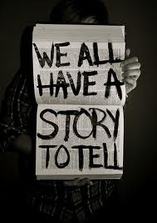Writing as a therapeutic activity

Any form of emotional expression helps with mental health, especially where one is struggling to me sense of difficult circumstances, self-doubt or self-criticism, wondering 'Why did I do that?' or finding themselves caught in wishful loops of If Onlys, as also to come to terms with situations where one doesn't have any longer the opportunity to address a specific concern directly, like with a separation or a painful event.
Writing especially is a reflective exercise and given the particularities of writing (viz., grammar, structure, vocabulary) makes the activity a lot more mindful and purposeful, and so is quite effective. Writing then as an act of self-disclosure and self-reflection, is really about getting to reflect upon one's actions, thoughts, perceptions and other layers of experience and meaning. Connecting to one's deeper longings helps facilitate healing, through experiencing relief of expression and exploring alternatives.
Of course, writing is not for every body. Some people are just not very verbal in their ways. And others might be so verbal that writing becomes an act of escape rather than therapeutic. It is generally helpful to have a few different tools.
Writing especially is a reflective exercise and given the particularities of writing (viz., grammar, structure, vocabulary) makes the activity a lot more mindful and purposeful, and so is quite effective. Writing then as an act of self-disclosure and self-reflection, is really about getting to reflect upon one's actions, thoughts, perceptions and other layers of experience and meaning. Connecting to one's deeper longings helps facilitate healing, through experiencing relief of expression and exploring alternatives.
Of course, writing is not for every body. Some people are just not very verbal in their ways. And others might be so verbal that writing becomes an act of escape rather than therapeutic. It is generally helpful to have a few different tools.
JournallingOne of the oldest ways of writing for oneself has been writing a personal journal, be it in a manual by hand, or online on a personal blog or other such resource.
Journal writing is different from maintaining a daily diary of events, activities or accounts, which has its uses but may have limited therapeutic values. In journalling, the writing focuses on the internal processes of the writer - the thoughts, feelings, concerns and processes of the writer, including a deeper introspection on one's desires, longings and expectations and helps get a deeper understanding of oneself through a process of dialoguing with oneself. For many, the process might start with a general outpouring of sentiments and emotion, a venting, but keeping at it usually evolves from the feel-good factor of venting to more introspective self-reflection and analysis, with questioning of oneself ("Why did I do that?" "What do I really want?" "What options do I have?" etc) invariably come up, and help create a deeper relationship with oneself. This is usually a personal and private activity, though some benefit from being able to share in a closed group (with their therapist, or a support circle), or even in a broader social broadcast format (on social media, for instance.) |
Narration and re-narrationIf one believes that all people intrinsically are positive and seek positive growth, then narration and review of the narration critically can help understand what stifled that positive growth motif.
Narrating one's story, especially writing about it, helps one get fully in touch with what about the event one has gone through was traumatic. It could be oppressive social environments (patriarchy, gender roles, ageism etc.,) lack of awareness of choices, clashing values or any other possibility. Again, sharing the story with a therapist or with others, can help for the differing critical perspectives to emerge. An especially powerful tool then is to then re-narrate the story, holding the insight achieved from narration, to re-imagine oneself and what could have been, which can be quite empowering. |
Writing with a specific Intent

While general journal writing is helpful and therapeutic, at times, writing with specific prompts and for specific intents are really helpful.
1.The Message Jar: A fun exercise, especially with younger kids, is to get them to write on small colourful pieces of paper, one or two things that they really enjoyed every few days and put them in a jar. This can then be a reminder of good times when things look tough, and are fun to revisit as a family, or over holidays.
2. The Feeling Wheel exercise: For people who struggle with connecting and naming their feelings, a specific exercise could be to look at a number of words expressing emotion across dimensions, and ask to remember a time when they felt it and to write about what happened, how they felt, what sensations they had in their body and how they might express the feeling.
3. Letter writing: Writing to another person, whether or not one actually sends it out, can be helpful to feel the relief of having been able to express. This could be about how one feels in a difficult relationship, or where the person is no longer in one's life, as a part of grieving over a loss, or expressing anger/ resentment which otherwise might be unaddressed.
4. Letter to a younger/ older self, or a part of oneself: Sometimes, we may feel particularly hard about ourselves for past mistakes or worry about our future selves, or maybe parts of ourselves that we have lost (physical parts through accidents or otherwise, or figuratively speaking). Writing to oneself or part of oneself helps forgive oneself for earlier hurt, deal with challenges and promise oneself greater self-care.
5. The 6 Whys: When we are stuck with a particular life-choice or a problem, writing about it and using analytical dialogues such as asking ourselves 'Why is that important to me?' at each level of writing, can help us uncover hidden longings and desires. For example, writing about disliking oneself for tolerating an emotionally abusive partner, if we ask these Whys might uncover fears of being lonely or self-doubt, which can then be worked upon
The ways we could use writing are limitless. The key is to allow ourselves to write objectively and without criticizing ourselves on grammar, punctuation or any other mundane aspects of writing.
1.The Message Jar: A fun exercise, especially with younger kids, is to get them to write on small colourful pieces of paper, one or two things that they really enjoyed every few days and put them in a jar. This can then be a reminder of good times when things look tough, and are fun to revisit as a family, or over holidays.
2. The Feeling Wheel exercise: For people who struggle with connecting and naming their feelings, a specific exercise could be to look at a number of words expressing emotion across dimensions, and ask to remember a time when they felt it and to write about what happened, how they felt, what sensations they had in their body and how they might express the feeling.
3. Letter writing: Writing to another person, whether or not one actually sends it out, can be helpful to feel the relief of having been able to express. This could be about how one feels in a difficult relationship, or where the person is no longer in one's life, as a part of grieving over a loss, or expressing anger/ resentment which otherwise might be unaddressed.
4. Letter to a younger/ older self, or a part of oneself: Sometimes, we may feel particularly hard about ourselves for past mistakes or worry about our future selves, or maybe parts of ourselves that we have lost (physical parts through accidents or otherwise, or figuratively speaking). Writing to oneself or part of oneself helps forgive oneself for earlier hurt, deal with challenges and promise oneself greater self-care.
5. The 6 Whys: When we are stuck with a particular life-choice or a problem, writing about it and using analytical dialogues such as asking ourselves 'Why is that important to me?' at each level of writing, can help us uncover hidden longings and desires. For example, writing about disliking oneself for tolerating an emotionally abusive partner, if we ask these Whys might uncover fears of being lonely or self-doubt, which can then be worked upon
The ways we could use writing are limitless. The key is to allow ourselves to write objectively and without criticizing ourselves on grammar, punctuation or any other mundane aspects of writing.
How can You help yourself?
If the idea of writing excites you, and you'd like to get a start, do the following:
- Get the necessary tools. If writing on paper, get yourself a suitable notebook, pens/ pencils/ crayons. If online, choose an app that works with the tools you use. Get a mobile app if needed
- Ensure your privacy. Many of us have had the embarrassing experience of cousins/ friends reading our diary. Please make sure this time it is protected.
- Start writing. At first, it might feel odd or unusual. Let it be. Just write, knowing it is for yourself. Write as it feels - don't worry about language, construction etc. Use other media if you like.
- Read what you write, and write more. From time to time, go back to what you wrote earlier. The mental distance from when you wrote it often triggers fresh thoughts and ideas, which you'd benefit from writing afresh.
- Write as genuinely as you can. This is for yourself - not for anybody else. So, there is everything to be gained by being as fully honest and truthful about yourself as you can. If at any time, on re-reading, you feel that sense that you have been less than fully direct with yourself, explore that further in writing.
- Time yourself, and make it a habit. Write for 15-30 minutes, for 3-5 days a week. Keep writing till it is a habit
When do you seek help? |
Writing for yourself can be a tool to develop your resilience. It helps immensely. Practice as you ca, and if you need assistance, feel free to call for help.
If you are facing a particular issue and wonder how writing might help, do call. We use writing and narrative therapy a lot, and can help you figure out a solution for yourself. More Information |
|
1. Good Therapy on Journaling as Therapy
2. PsychCentral on the Healing Power of Journal Writing 3. The Age on Re-Authoring and Narrative Therapy 4. LifeHack on 5 Online Journaling Tools |
